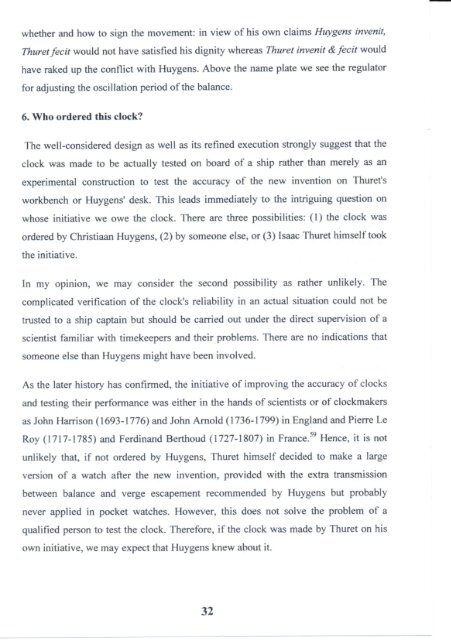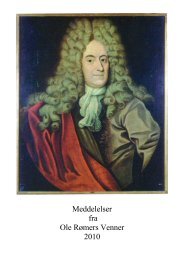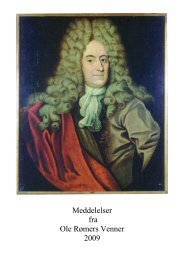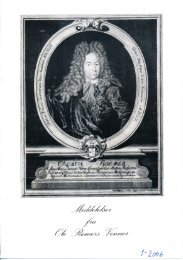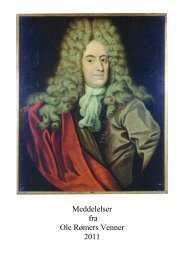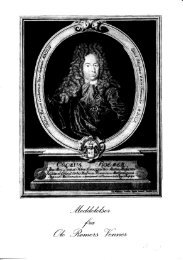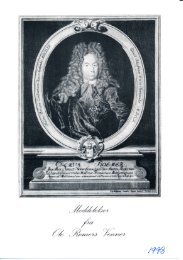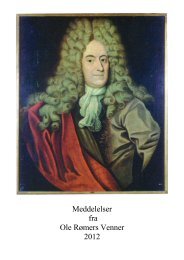Meddelelser 2008 - Ole Rømers Venner
Meddelelser 2008 - Ole Rømers Venner
Meddelelser 2008 - Ole Rømers Venner
You also want an ePaper? Increase the reach of your titles
YUMPU automatically turns print PDFs into web optimized ePapers that Google loves.
whether and how to sign the movement: in view of his own claims Hrytgens invenit,<br />
Thuret fecir would not have satisfied his dignity whereas Thuret invenit & fecit would<br />
have raked up the conflict with Huygens. Above the name plate we see the regulator<br />
for adjusting the oscillation period of the balance.<br />
6. Who ordered this clock?<br />
The well-considered design as well as its refined execution strongly suggest that the<br />
clock was made to be actually tested on board of a ship rather than merely as an<br />
experimental construction to test the accuracy of the new invention on Thuret's<br />
workbench or Huygens' desk. This leads immediately to the intriguing question on<br />
whose initiative we owe the clock. There are three possibilities: (l) the clock was<br />
ordered by Christiaan Huygens, (2) by someone else, or (3) Isaac Thuret himself took<br />
the initiative.<br />
In my opinion, we may consider the second pssibiliry at rather unlikely. The<br />
complicated verification of the clock's reliability in an actual situation could not be<br />
trusted to a ship captain but should be carried out under the direct supervision of a<br />
scientist familiar with timekeepers and their problems. There are no indications that<br />
someone else than Huygens might have been involved.<br />
As the later history has confirmed, the initiative of improving the accuracy of clocks<br />
and testing their performance was either in the hands of scientists or of clockmakers<br />
as John Harrison (1693-1776) and John Arnold {1736-1799) in England and Pierre Le<br />
Roy ( l7l7-17S5) and Ferdinand Berthoud (17?7-1807) in France.5e Hence, it is not<br />
unlikely that, if not ordered by Huygens, 'Ihuret himself decided to make a large<br />
version of a watch after the new invention, provided with the extra transmission<br />
between balance and verge escapement recommended by Huygens but probably<br />
never applied in pocket watches. However, this does not solve the problem of a<br />
qualified person to test the clock. Therefore, if the clock was made by Thuret on his<br />
own initiative, we may expect that Huygens knew about it.<br />
32


